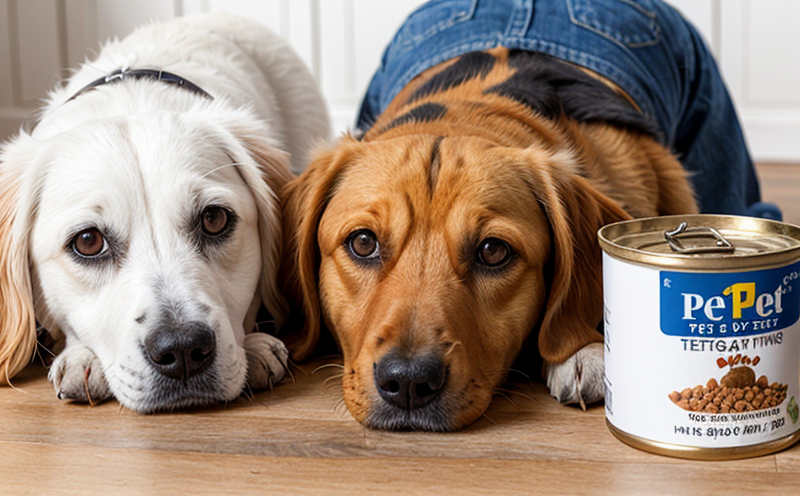ISO 48329 Vitamin D Profiling in Pet Nutrition
The ISO 48329 standard outlines a comprehensive approach to profiling vitamin D levels across various pet nutrition products. This service is designed for laboratories that need precise and accurate data on the vitamin D content of pet food formulations, ensuring compliance with international standards.
Our proficiency in this area enables us to deliver reliable results that are crucial for maintaining product safety and quality. The testing process involves meticulous sample preparation, analysis using state-of-the-art instrumentation, and robust statistical evaluation to provide actionable insights into the vitamin D content of pet food products.
Vitamin D plays a vital role in pet nutrition by supporting bone health, muscle function, and immune system maintenance. Ensuring adequate levels of this essential nutrient is paramount for maintaining the well-being of pets. By providing accurate and consistent vitamin D profiling, we help clients meet regulatory requirements and enhance product quality.
Our service covers a wide range of pet food products, including dry kibble, wet canned foods, and semi-moist treats. The testing process begins with rigorous sample preparation to ensure the integrity of the analysis. This includes homogenization, extraction, and purification steps that are critical for obtaining accurate results.
The analytical techniques we employ include high-performance liquid chromatography (HPLC) and mass spectrometry (MS), which provide unparalleled precision in measuring vitamin D levels. Our expertise lies in interpreting these data points to offer insights into the efficacy of different formulations. This approach not only aids in meeting regulatory standards but also supports ongoing research and development efforts.
The testing process is governed by ISO 48329, which mandates stringent quality control measures and validation protocols. Compliance with this standard ensures that our results are reliable and can be trusted for making informed decisions about product formulations. By adhering to these guidelines, we ensure that every test conducted meets the highest scientific standards.
In addition to regulatory compliance, our service also supports sustainability initiatives by providing data that can inform more sustainable pet food production practices. Understanding vitamin D levels in different geographic regions and climates is crucial for tailoring products to meet local nutritional needs while minimizing environmental impact.
| Standard Number | Title | Description |
|---|---|---|
| ISO 48329 | Vitamin D Profiling in Pet Nutrition | This standard provides guidelines for the accurate measurement and profiling of vitamin D content in pet food products. |
Applied Standards
The ISO 48329 standard is pivotal in ensuring that our testing aligns with international best practices. This standard is specifically designed to address the challenges of vitamin D profiling in pet nutrition, offering a robust framework for laboratories to follow.
Why Choose This Test
- Comprehensive analysis covering multiple pet food products including dry kibble, wet canned foods, and semi-moist treats.
- Utilization of advanced analytical techniques such as HPLC and MS for precise measurement.
- Stringent quality control measures and validation protocols to ensure reliability and accuracy of results.
- Supports regulatory compliance and sustainability initiatives by providing actionable insights into vitamin D content.
Environmental and Sustainability Contributions
Understanding the vitamin D content in pet food products can help reduce waste and promote sustainable practices. By profiling vitamin D levels, we contribute to minimizing environmental impact by ensuring that nutritional requirements are met without excess or deficiency.
- Helps in formulating more precise dietary plans for pets reducing unnecessary nutrient consumption.
- Supports the development of products tailored to specific geographic and climatic conditions, thereby optimizing resource use.
- Promotes responsible pet ownership by ensuring that pets receive adequate nutrition, which can lead to healthier populations with lower veterinary costs.





